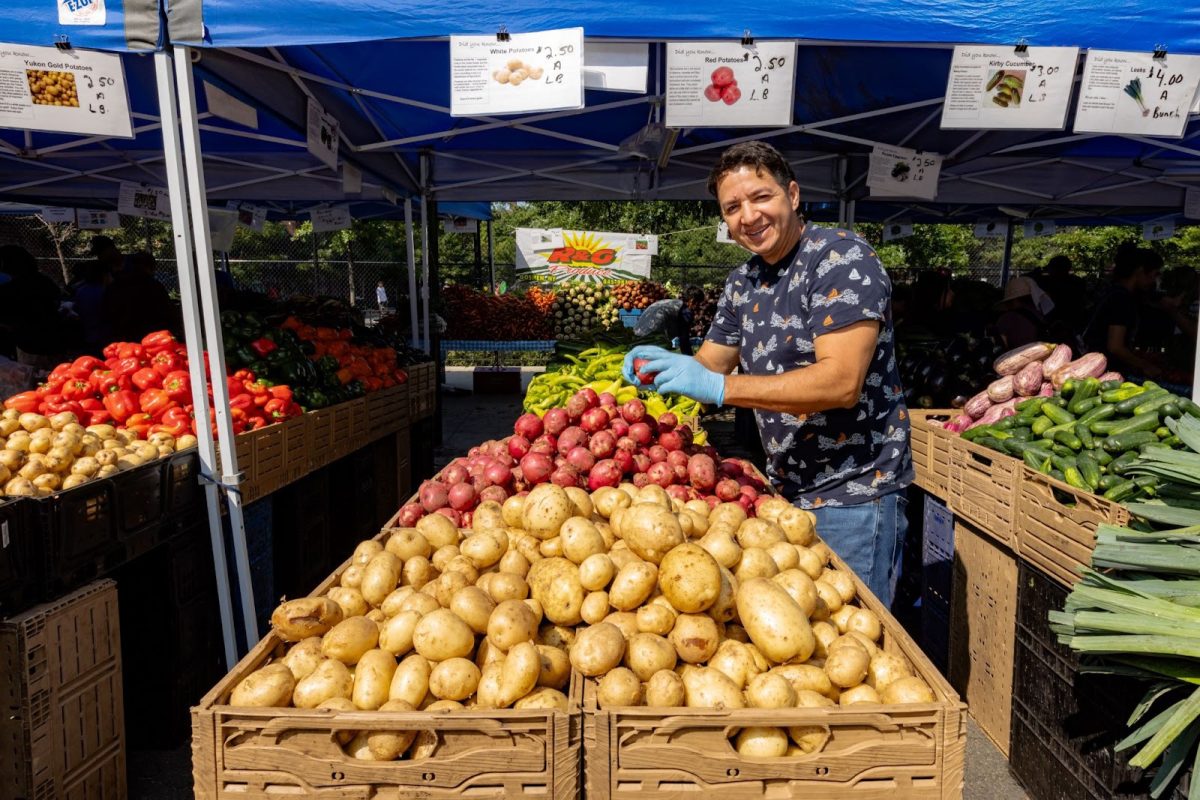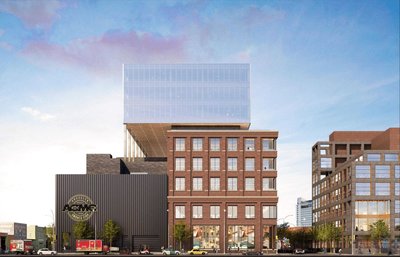Jackson Heights Greenmarket Bridges the Gap Between Farmer and New Yorker
By Stella Raine Chu
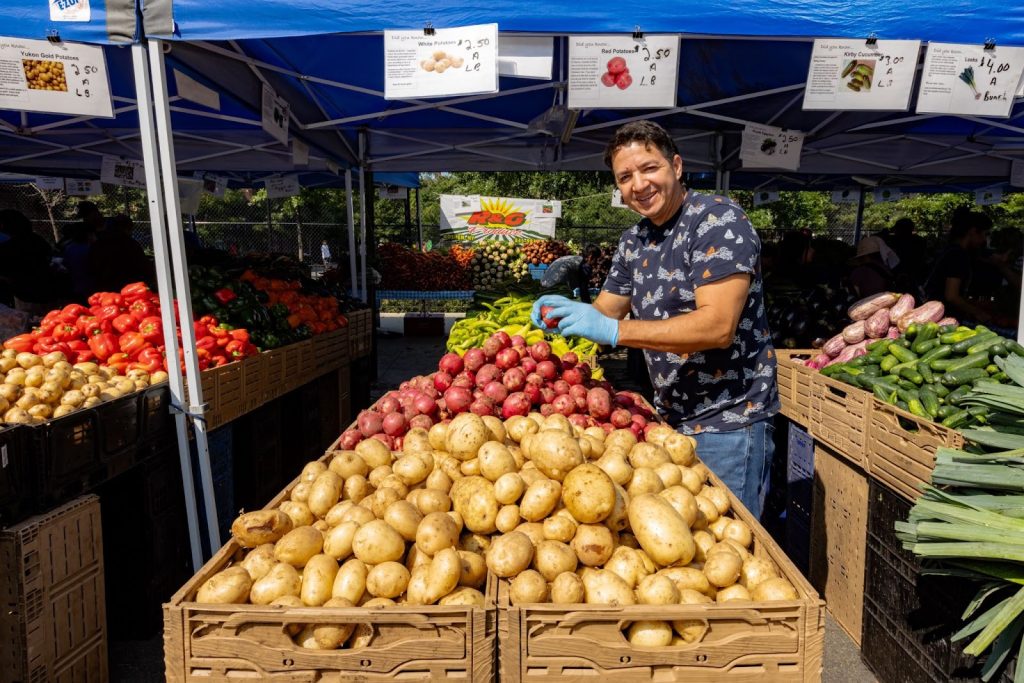
R&G Produce from Orange County, New York. Credit: GrowNYC
To find fresh produce, one needs to go no further than 34th and 79th in Jackson Heights, Queens.
Here, tents are pitched along the two-block radius in an L-shape, selling everything from freshly harvested fruits and vegetables, fish, poultry, baked goods, dairy products and more. The market is open year-round, every Sunday morning.
Jackson Heights Greenmarket is run by GrowNYC, a non-profit organization looking to supply New Yorkers across the five boroughs with fresh and locally grown produce. Founded in 1970, the organization is responsible for over 160 community gardens and 46 Greenmarkets across the city.
In order to maintain the quality and authenticity of their products, GrowNYC requires farmers looking to sell at Greenmarkets to meet a rigid set of requirements: they must only sell what they grow or produce, be in full control of their products, come to the market themselves, and be located within their predetermined Region, a circle extending 120 miles to the south, 170 miles east and west, and 250 miles north of New York City. Farmers may not sell anything irradiated or genetically modified.
“Health is number one,” said Naho Matsuzawa, a regional manager of GrowNYC’s Greenmarket program. “To be able to talk to these producers on their farming practices, their organic methods, how they’re utilizing the crops from last year to fertilize future crops — I think all that is very important for the community to know and have access to.”
Matsuzawa says that the 250 mile radius that producers are required to be located within means fresh food, a lower carbon footprint, and local support for local farmers.
The Greenmarket program is also a good chance for all New Yorkers, regardless of income, to eat healthy.
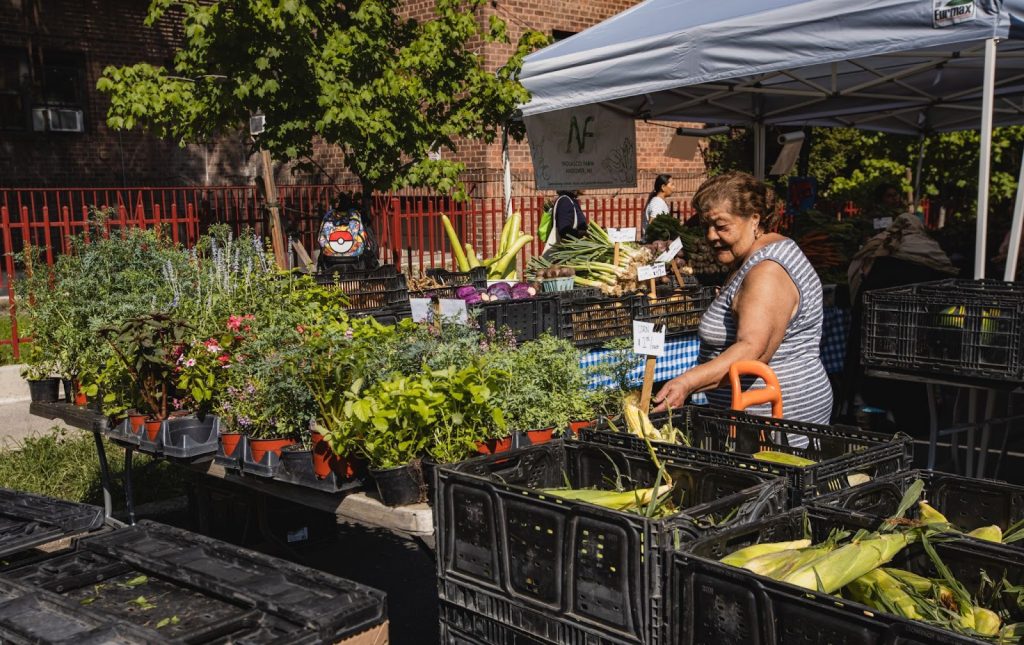
A shopper browses the selections available at Nolasco Farm, specializing in Mexican produce. Credit: GrowNYC
While the city has launched programs that make it easier for low-income New Yorkers to access healthy foods — Green Carts are food trucks that bring fresh produce to neighborhoods that may otherwise lack access to them, and the Shop Healthy program partners with food retailers in neighborhoods with high rates of nutrition-related diseases to stock healthier foods — more needs to be done.
About one in three lowest-income households, meaning $25,000 or less, in New York reported food insufficiency in 2023. Since the rise of the COVID pandemic, food insecurity has remained high. While state intervention programs like SNAP Emergency Allotments and free school meals filled in some of the gaps in the food chain, these programs have since been rolled back and left New Yorkers struggling once again.
The prevalence of nutrition-related diseases like diabetes and obesity vary largely by zip code. Determining walkability, access to healthy food, transportation, and prevalence of sodium-filled fast-food chains, where New Yorkers live greatly influences their diet. In a neighborhood like Manhattan’s Upper East Side, 8.8 percent of residents are considered obese. In the South Bronx, that number is a staggering 37 percent.
But programs like Greenmarkets are looking to change that — all of their locations accept SNAP/EBT and Healthfirst OTC cards. For every two dollars spent using SNAP/EBT, two dollars are earned in Health Bucks, which can then be used to purchase fruits and vegetables at all farmers markets across the city.
In 2023, $4 million in SNAP/EBT was redeemed at GrowNYC Greenmarkets.
“Everyone thinks farmers’ markets are expensive,” said Christopher Novak, co-owner of Abundance Acres Farms in Stone Arabia, New York. Ten years ago, Novak and his life partner Pam MacKenzie decided to start a 200-acre homestead home to various kinds of poultry, swines, sheeps, and goats. Since then, they’ve sold to a variety of markets in the metropolitan area and have been at Jackson Heights Greenmarket for six years.
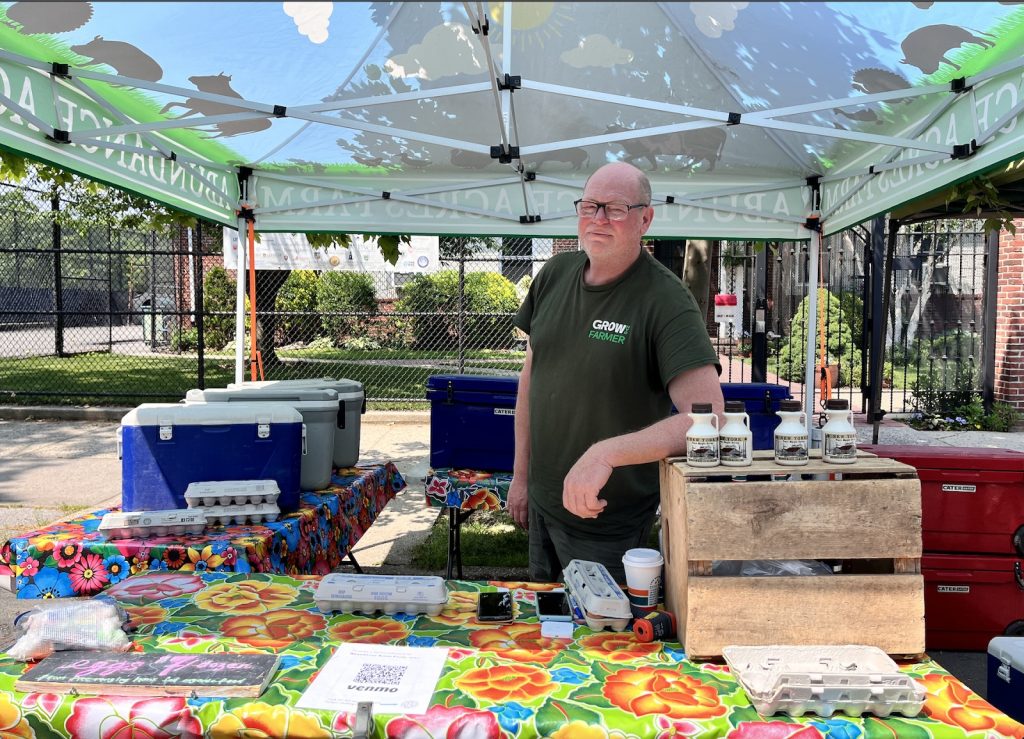
Christopher Novak, co-owner of Abundance Acres Farms in Stone Arabia, New York. Novak and his life partner Pam MacKenzie started their homestead ten years ago. Credit: Stella Raine Chu
“You can go to any upscale chain, I won’t mention names — Whole Foods — and you will find our quality just kicks ass and our price is comparable,” he said. But Novak says it’s more than the cost — it’s knowing where your food comes from and where it’s been.
“When you eat a hamburger from a fast food chain, it can contain ground beef from 2,000 animals,” he said. “But ours is all single source. I picked up the cow when it was born, it’s been with Mama, it gets real milk, sunshine and grass. It gets one bad day, and after that it comes here.”
But for all the value that farmers provide their customers — competitive price points, fresh and healthy food, and a community on the basis of said food — there are serious struggles.
As of 2023, the average age of an American farmer was 57.5 years old. That’s up sharply from 1978, when the same figure was a little over 50. Young people don’t want to become farmers — and for good reason. The barriers to entry are mounting against them, including but not limited to: cost of land, student loan debt, climate change, housing, healthcare and equipment costs.
Additionally, the overall stress of the agriculture industry leaves more to be desired. Farmers are often at the mercy of the weather, supply shortages, volatile markets and other uncontrollable factors.
But if the younger generation won’t take up the job of feeding America, no one will. That spells out a big problem for the future of the country’s food chain.
Anticipating this problem, the USDA has launched programs to aid new farmers, particularly female farmers and farmers of color, providing farm loans and crop insurance to those looking to start their own farms.
For more seasoned farmers, GrowNYC runs the Beginning Farmer Program to provide those already with agricultural experience the boost they need to establish their own farms, for free. In 2023, the program helped 40 farmers receive legal and financial assistance, and 10 farmers received help launching their own farm businesses.
“Farmers don’t plan for tomorrow, we plan for a generation ahead,” Novak said. “I’m planting trees I will never see to mighty maples and oaks — but I plant them to leave something for someone that I’m going to leave my stewardship of this land to.”
For now, farmers like Christopher Novak will continue to feed New Yorkers by providing fresh, locally grown food, no matter their tax bracket. Despite the hardships, they’ll continue to pitch their tents on 34th and 79th every Sunday morning, without fail.
“We haven’t had a vacation in a decade, but it’s alright,” Novak said. “Because some days you sit at the farm, you share an adult beverage and watch the sun go down — nothing’s run away, nothing’s died. And it’s good. It’s a good day.”


